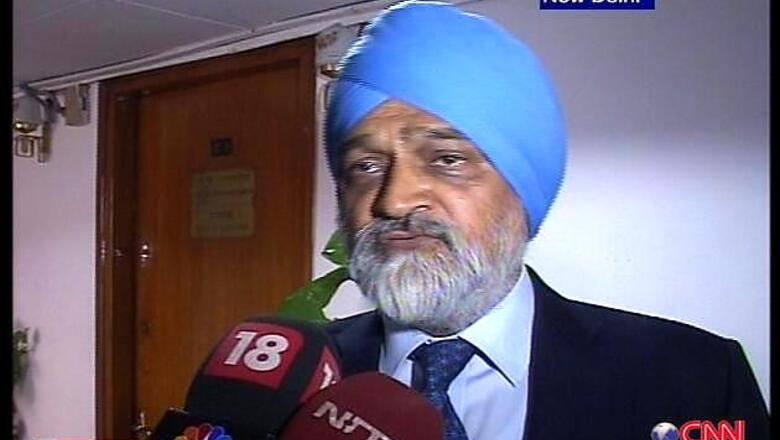
views
Planning Commission Deputy Chairman Montek Singh Ahluwalia, on Saturday, said US investment bank Goldman Sachs should not be commenting on political matters.
"I don't agree with Goldman Sachs. Lots of people have said they should not be pronouncing on these things," Ahluwalia said on the sidelines of a function organised by the Institute for Defence Studies and Analyses.
Goldman Sachs had in a recent report upgraded the Indian markets on the likelihood of Narendra Modi coming to power.
"The truth of the matter is we are perfectly aware what needs to be done, at least as far as the Planning Commission is concerned. We have laid out a very bold agenda, which has been approved by the Cabinet, NDC (National Development Council) and so on," he said.
"In the last six months before a general election, that's not when all these things are implemented. So, I have no idea what Goldman Sachs means," he added.
Goldman Sachs, in a report titled "Modi-fying Our View: Raise India to Marketweight," upgraded its outlook for domestic equities and revised its end-2014 target for the Nifty index to 6,900 points, implying a 9 per cent rise from current levels.
The report attributed the optimism to the opposition BJP-led alliance gaining ground in opinion polls in the past few months, suggesting a higher probability of a BJP-led alliance forming the next government.
The 18-page report described the BJP's Prime Ministerial candidate as more business-friendly.
Commerce and Industry Minister Anand Sharma had said the report is "most inappropriate and objectionable." Goldman Sachs stood by the report, saying it was based on investor sentiment and does not reflect political bias.
Talking about the poor, Ahluwalia said there is no serious possibility of reducing poverty if the country doesn't get back to 8 per cent growth.
"May be able to help here and there, but that getting back to 8 per cent inclusive growth is the central part of strategy if you want to make an impact on the poor," he said.
He said that the rate of poverty reduction was higher in the decade after 2004 than in 1993-2004.
"Record of UPA government between 2004-11 -- and you must take period as a whole -- the growth rate of the UPA government for the economy has been much higher than the previous period," he said.
"The progress in terms of reducing poverty has been three times faster than the previous period," he said.
Ahluwalia added that new initiatives taken in areas such as education, health and skill development will show results in the years ahead.




















Comments
0 comment